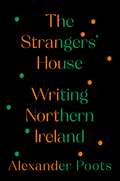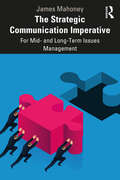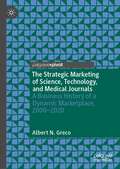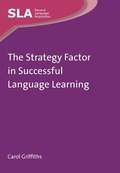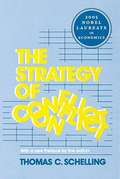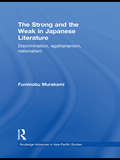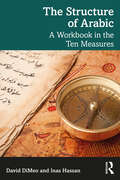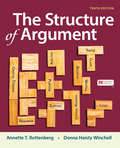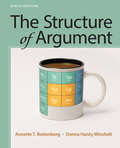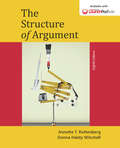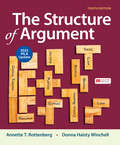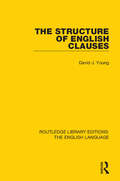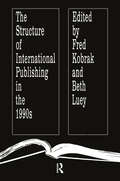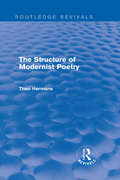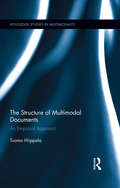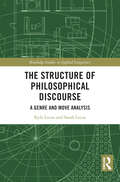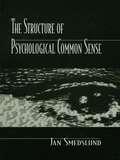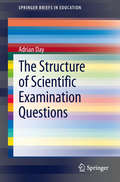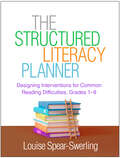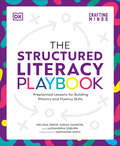- Table View
- List View
The Strangers' House: Writing Northern Ireland
by Alexander PootsA penetrating study and celebration of Northern Irish literature—telling the region&’s story through the extraordinary novels and poetry produced by decades of conflict. Northern Ireland is one hundred years old. Northern Ireland does not exist. Both of these statements are true. It just depends who you ask. How do you write about a place like this? THE STRANGERS' HOUSE asks this question of the region&’s greatest writers, living and dead. What have they made of Northern Ireland – and what has Northern Ireland made of them? Northern Ireland is roughly the same size as the State of Connecticut, yet has produced an extraordinary number of celebrated poets and novelists. Louis MacNeice, too clever to be happy, formed by his childhood on the shores of Belfast Lough; son of a Protestant clergyman &“banned for ever from the candles of the Irish poor&”. C. S. Lewis, who discovered Narnia in the rolling drumlins and black rock of County Down. Anna Burns, chronicler of North Belfast and winner of the Booker Prize. And Seamus Heaney, the man of wry precision, the poet with the gift of surprise. As well as household names, Poots also examines writers who may be less familiar to an American readership. These include the dark and bawdy novels of Ian Cochrane, a half-blind writer obsessed with Columbo, and Forrest Reid, a man who saw Arcadia in the Irish countryside, and who was, perhaps, the North&’s first queer author. Reading the work of these writers together produces a testament to over one hundred years of literary endeavor and human struggle. THE STRANGERS' HOUSE is the story of how men and women have written about a home divided, and used their work to move, in the words of Seamus Heaney, &“like a double agent among the big concepts.&”
The Strategic Communication Imperative: For Mid- and Long-Term Issues Management
by James MahoneyThis book proposes a model for directly aligning strategic communication with organisational business planning to enable effective management of mid- to long-term organisational issues. It argues that current conceptualisations of strategic communication need to be extended to locate it more precisely within definitions of strategy and as an essential element of mid- and long-term business planning. This approach re-positions strategic issues communication in a professional practice dimension that has a specific focus on issues that do not immediately impact on an organisation’s ability to achieve its day-to-day business goals. Full of contemporary examples from business, and including a thorough explanation of how the model can be applied in professional practice, the book will prove illuminating reading for scholars, students, and professionals alike.
The Strategic Marketing of Science, Technology, and Medical Journals: A Business History of a Dynamic Marketplace, 2000–2020
by Albert N. GrecoThis book analyzes the various economic and marketing strategies utilized by the five major STM commercial scholarly journal publishers since 2000. This period has witnessed tremendous economic, marketing, and technological growth including the migration from a print only to a hybrid publishing format. With this growth, the industry has also seen the rise of open access publishing, copyright challenges by websites such as Sci-Hub, the emergence of sharing platforms such as ResearchGate and Academia.edu, as well as the impact of Plan S on publishers, universities, and authors. Given this incredible rate of change across the industry, the author explores the diverse strategies and structures created by the largest STm publishers to decipher their effectiveness in addressing technological, ethical, and copyright issues. Also, he examines how mergers and acquisitions diversified operations, such Elsevier's acquisition of Bepress, SSRN, and SCOPUS, among other platforms. Scrutinizing the different managerial, marketing, technology, and economic-financial strategies crafted by scholarly journal publishers between 2000-2020, this book offers a comprehensive assessment of the industry's attempts to identify, understand, cope with, and minimize or defeat the herculean threats to its business model.
The Strategy Factor in Successful Language Learning
by Carol GriffithsThis book addresses fundamental questions regarding the relationships between successful language learning and strategy use and development according to learner, situational or target variables. It considers strategy effectiveness from an individual point of view and discusses pedagogical issues, especially relating to teacher perceptions and training, classroom and learner factors, methodology and content. The book begins by discussing underlying theoretical issues and then presents evidence from empirical studies; in addition to presenting a quantitative view, the book also takes a qualitative look at strategy use by individuals. Rather than focusing on strategies divorced from the 'real world' of the classroom, this book explores the issues from the teaching/learning point of view.
The Strategy of Conflict
by Thomas C. SchellingThe text opens to rational analysis a crucial field of politics, the international politics of threat, or as the current term goes, of deterrence.
The Stray Bullet: William S. Burroughs in Mexico
by Jorge García-RoblesWilliam S. Burroughs arrived in Mexico City in 1949, having slipped out of New Orleans while awaiting trial on drug and weapons charges that would almost certainly have resulted in a lengthy prison sentence. Still uncertain about being a writer, he had left behind a series of failed business ventures—including a scheme to grow marijuana in Texas and sell it in New York—and an already long history of drug use and arrests. He would remain in Mexico for three years, a period that culminated in the defining incident of his life: Burroughs shot his common-law wife, Joan Vollmer, while playing William Tell with a loaded pistol. (He would be tried and convicted of murder in absentia after fleeing Mexico.)First published in 1995 in Mexico, where it received the Malcolm Lowry literary essay award, The Stray Bullet is an imaginative and riveting account of Burroughs&’s formative experiences in Mexico, his fascination with Mexico City&’s demimonde, his acquaintances and friendships there, and his contradictory attitudes toward the country and its culture. Mexico, Jorge García-Robles makes clear, was the place in which Burroughs embarked on his &“fatal vocation as a writer.&”Through meticulous research and interviews with those who knew Burroughs and his circle in Mexico City, García-Robles brilliantly portrays a time in Burroughs&’s life that has been overshadowed by the tragedy of Joan Vollmer&’s death. He re-creates the bohemian Roma neighborhood where Burroughs resided with Joan and their children, the streets of postwar Mexico City that Burroughs explored, and such infamous figures as Lola la Chata, queen of the city&’s drug trade. This compelling book also offers a contribution by Burroughs himself—an evocative sketch of his shady Mexican attorney, Bernabé Jurado.
The Strong and the Weak in Japanese Literature: Discrimination, Egalitarianism, Nationalism (Routledge Advances in Asia-Pacific Studies)
by Fuminobu MurakamiThis book uses texts from classical to modern Japanese literature to examine concepts of 'respect for the strong', as a notion of an evolutionary society, and 'sympathy for the weak', as a notion of a non-violent and changeless egalitarian society. The term strong refers not just to those with strength and power. It also includes other ideal attributes such as beauty, youth and goodness. Similarly, the term weak implies not only the weak and infirm, but also the disadvantaged, the indecent, the unsophisticated and those generally shunned by society. The former are associated not only with the power of life, competition, evolution, progress, development, ability, effectiveness, efficiency, individuality, the future, hope and romance, but also with violence, fighting, bullying, discrimination and sacrifice. The latter, in contrast, invoke notions of peace, egalitarianism, anti-discrimination and welfare, as well as stagnation, retreat, retrogression, degeneration and the decline of vital powers. By using these two concepts Murakami skillfully weaves a narrative that is part literary criticism, part social commentary. As such the book will be of huge interest to not only scholars and students of Japanese literature, but also those of Japanese society and culture.
The Structural Design of Language
by Thomas S. Stroik Michael T. PutnamAlthough there have been numerous investigations of biolinguistics within the Minimalist Program over the last ten years, many of which appeal to the importance of Turing's Thesis (that the structural design of systems must obey physical and mathematical laws), these studies have by and large ignored the question of the structural design of language. They have paid significant attention to identifying the components of language - settling on a lexicon, a computational system, a sensorimotor performance system and a conceptual-intentional performance system; however, they have not examined how these components must be inter-structured to meet thresholds of simplicity, generality, naturalness and beauty, as well as of biological and conceptual necessity. In this book, Stroik and Putnam take on Turing's challenge. They argue that the narrow syntax - the lexicon, the Numeration, and the computational system - must reside, for reasons of conceptual necessity, within the performance systems. As simple as this novel design is, it provides, as Stroik and Putnam demonstrate, radical new insights into what the human language faculty is, how language emerged in the species, and how language is acquired by children.
The Structure and Performance of Euripides' Helen
by C. W. MarshallUsing Euripides' play, Helen, as the main point of reference, C. W. Marshall's detailed study expands our understanding of Athenian tragedy and provides new interpretations of how Euripides created meaning in performance. Marshall focuses on dramatic structure to show how assumptions held by the ancient audience shaped meaning in Helen and to demonstrate how Euripides' play draws extensively on the satyr play Proteus, which was part of Aeschylus' Oresteia. Structure is presented not as a theoretical abstraction, but as a crucial component of the experience of performance, working with music, the chorus and the other plays in the tetralogy. Euripides' Andromeda in particular is shown to have resonances with Helen not previously described. Arguing that the role of the director is key, Marshall shows that the choices that a director can make about role doubling, gestures, blocking, humour, and masks play a crucial part in forming the meaning of Helen.
The Structure of Arabic: A Workbook in the Ten Measures
by David DiMeo Inas HassanThe Structure of Arabic: A Workbook in the Ten Measures is a comprehensive guide and workbook in the ten measures of Arabic words, the backbone of the Arabic lexical system, and provides a systematic explanation of the root and pattern system that forms the basis of most Arabic words. Successful Arabic learners have long recognized mastery of these measures and patterns as key to understand the Arabic language. With knowledge of this system, learners will be able to predict the meaning of unfamiliar words, recognize the function of words, and understand correct pronunciation of Arabic words, making vocabulary acquisition and retention easier. This unique textbook introduces measures and patterns sequentially across ten chapters, helping learners to navigate the topics in a logical manner. Without complicated jargon or technical language, this easy-to-understand textbook demystifies key topics in Arabic grammar. Comparative sentences which encapsulate the differences between measures give context, and exercises within the chapters serve to consolidate the learners’ grasp of the material presented.Designed to supplement both class-based Arabic courses and independent study, The Structure of Arabic will help learners of Arabic at all levels of competency to improve their vocabulary, pronunciation, spelling, and comprehension.
The Structure of Argument
by Annette Rottenberg Donna WinchellWith The Structure of Argument you get coverage of argument that’s affordable and easy to apply as you build your own compelling essays. And if you’re writing a research paper, you’ll appreciate the guidance on evaluating sources for bias and the sample essays that model effective use of digital sources.
The Structure of Argument
by Annette T. Rottenberg Donna Haisty WinchellThe Structure of Argument teaches students how to approach, develop, and defend arguments one element at a time. This concise but thorough text carefully scaffolds argument for students, explaining approaches to argumentation, critical reading, and argument analysis. The major components of argumentation--claims, support, assumptions, logic--are explained in depth, and a robust research section shows students how to find, incorporate, and build on existing arguments. The Ninth Edition has been updated with more sourced readings than ever before, including a section of debates on unsettled current topics, further reinforcing the importance of research and synthesis. With its value price tag, The Structure of Argument is an affordable, accessible resource for the argument classroom. The Structure of Argument is available with LaunchPad Solo for Readers and Writers. By combining formative and summative assessments with opportunities to study, practice, and review specific skills, LaunchPad Solo for Readers and Writers provides instructors with a quick and flexible solution for targeting instruction on critical reading, the writing process, grammar, mechanics, style, and punctuation based on students' unique needs. Students will gain confidence by working through sequenced units that guide them from concept to mastery. At home or in class, students learn at their own pace, with instruction tailored to individual learners.
The Structure of Argument
by Annette T. Rottenberg Donna Haisty WinchellPACKAGE THIS TITLE WITH OUR 2016 MLA SUPPLEMENT, Documenting Sources in MLA Style (package ISBN-13: 9781319084776). Get the most recent updates on MLA citation in a convenient, 40-page resource based on The MLA Handbook, 8th Edition, with plenty of models. Browse our catalog or contact your representative for a full listing of updated titles and packages, or to request a custom ISBN. The Structure of Argument covers critical thinking, reading, writing, and research. Concise but thorough, it includes questions, exercises, writing assignments, and a full semester's worth of readings--everything students need in an affordable, compact format. Presenting Aristotelian and Rogerian as well as Toulmin argument, The Structure of Argument has been totally revised, with more than three-quarters of the readings new (including many multimodal selections available online at no extra charge), new coverage of multimodal argument, expanded treatment of key rhetorical concepts, a fresh new design, and additional support for research. Its emphasis on Toulmin argument makes Structure highly teachable, since the approach fits with the goals of the composition course.
The Structure of Argument with 2021 MLA Update
by Annette T. Rottenberg Donna Haisty WinchellThis ebook has been updated to provide you with the latest guidance on documenting sources in MLA style and follows the guidelines set forth in the MLA Handbook, 9th edition (April 2021).With The Structure of Argument you get coverage of argument that’s affordable and easy to apply as you build your own compelling essays. And if you’re writing a research paper, you’ll appreciate the guidance on evaluating sources for bias and the sample essays that model effective use of digital sources.
The Structure of English Clauses (Routledge Library Editions: The English Language #29)
by David J. YoungFirst published in 1980, this book provides a clear and practical introduction to a wide variety of English structures. It concentrates on a large and crucial area of English grammar, which covers units of higher rank than words, and structures that have verbs rather than nouns as their nuclear elements. Throughout the book, David Young focuses on the English language as it is actually spoken. At every point his discussion of syntax is closely integrated with meaning, and he pays particular attention to the ways in which speakers of English signal their intensions. The author points out how verbal patterning is meaningful, and outlines the criteria used by grammarians to distinguish one structure from another. The result is an analytical framework that can be applied to any real-life text in order to understand its structure. This is a book that will encourage a realistic, exploratory and investigative attitude towards the English language.
The Structure of English for Readers, Writers, and Teachers (2nd Edition)
by Mary M. ClarkThe Structure of English for Readers, Writers, and Teachers offers an up-to-date survey of the grammar of English (our pronunciation, our spelling system, our vocabulary, and the structure of our words, phrases, and sentences) with applications for writers, teachers of language arts, and students of literature.
The Structure of International Publishing in the 1990s
by Fred KobrakThe past decade has brought dramatic changes to the publishing industry. Publishing companies merged with one another or were bought by larger companies or media conglomerates; mergers and acquisitions crossed national boundaries and language barriers; technological advances altered the publication process and made available new media and the re-examination of the established print media. This volume examines these changes and illuminates the various prospects for the future of publishing in the coming decade.
The Structure of Modernist Poetry (Routledge Revivals)
by Theo HermansFirst published in 1982, this book provides a descriptive and comparative study of some of the fundamental structural aspects of modernist poetic writing in English, French and German in the first decades of the twentieth century. The work concerns itself primarily with basic structural elements and techniques and the assumptions that underlie and determine the modernist mode of poetic writing. Particular attention is paid to the theories developed by authors and to the essential ‘principles of construction’ that shape the structure of their poetry. Considering the work of a number of modernist poets, Theo Hermans argues that the various widely divergent forms and manifestations of modernistic poetry writing can only be properly understood as part of one general trend.
The Structure of Multimodal Documents: An Empirical Approach (Routledge Studies in Multimodality)
by Tuomo HiippalaThis book develops a new framework for describing the structure of multimodal documents: how language, image, layout and other modes of communication work together to convey meaning. Building on recent research in multimodal analysis, functional linguistics and information design, the book examines the textual, visual, and spatial aspects of page-based multimodal documents and employs an analytical model to describe and interpret their structure using the concepts of semiotic modes, medium and genre. To demonstrate and test this approach, the study performs a systematic, longitudinal analysis of a corpus of multimodal documents within a single genre: an extensively annotated corpus of tourist brochures produced between 1967-2008. The book provides multimodal discourse analysts with methodological tools to draw empirically-based conclusions about multimodal documents, and will be a valuable resource for researchers planning to develop and study multimodal corpora.
The Structure of Philosophical Discourse: A Genre and Move Analysis (Routledge Studies in Applied Linguistics)
by Sarah Lucas Kyle LucasThis book builds on existing work in genre analysis and move analysis in English for Specific Purposes (ESP) and applies this new framework to academic philosophical discourse, offering new insights into how ESP traditions can elucidate shifts in language conventions across disciplinary contexts.The volume begins by surveying the state of the art in English for Specific Purposes and genre theory, as well as other genre theory paradigms before turning the focus on move analysis. Lucas and Lucas seek to maximize the potential of move analysis to precisely operationalize functional units of discourse by implementing a cognitive theory of genre grounded in frame semantics. Using the case of academic research articles in philosophy, the authors demonstrate how this framework can reveal distinctive dimensions unique to philosophical discourse and, in turn, how such an approach might be applied more broadly to examine nuances in language across disciplines and inform ESP research in the future.This book will appeal to students and researchers in English for Specific Purposes, discourse analysis, academic writing, applied linguistics, and rhetoric and composition.
The Structure of Psychological Common Sense
by Jan SmedslundPsychologic is a formal system and relationship within which psychological processes are defined. The language people ordinarily use to formulate, think, and talk about psychological phenomena is organized by Jan Smedslund into a set of propositions aimed at identifying the generalities which underlie human behavior. In this way, psychologic illuminates the conceptual system of psychology embedded in ordinary language. This book continues Professor Smedslund's search for stable theoretical structures to explain the meanings that are part of all psychological investigation.
The Structure of Scientific Examination Questions
by Adrian DayThis book shows how Systemic Functional Linguistics may be used to explore and explain the grammar of scientific examination questions. The author outlines the key elements of this theory and identifies problematical structures that affect the linguistic validity of such education assessment questions. This book also shows how examination questions may provide insight into the relationship between teaching and language in science. Do candidates give an incorrect answer because they do not understand the topic or because they do not understand the language by which the question is framed? This book shows how the analysis of scientific examination questions can answer this question. These chapters show how contemporary linguistics can inform the assessment of science and address topics including: the role of images, lexicography, the morphology of sentences, semantic discontinuity and the active reader. An example question is used throughout the text to illustrate the theories and each chapter has its own useful summary, making it a very readable work.
The Structure of Spoken Language
by Philippe MartinUsing an innovative approach, this book focuses on a widely debated area of phonetics and phonology: intonation, and specifically its relation to metrics, its interface with syntax, and whether it can be attributed more to phonetics or phonology, or equally to both. Drawing on data from six Romance languages (French, Italian, Spanish, Portuguese, Catalan and Romanian), whose rich intonation patterns have long been of interest to linguists, J-Philippe Martin challenges the assumptions of traditional phonological approaches, and re-evaluates the data in favour of a new usage-based model of intonation. He proposes a unified description of the sentence prosodic structure, focusing on the dynamic and cognitive aspects of both production and perception of intonation in speech, leading to a unified grammar of Romance languages' sentence intonation. This book will be welcomed by researchers and advanced students in phonetics and phonology.
The Structured Literacy Planner: Designing Interventions for Common Reading Difficulties, Grades 1-9
by Louise Spear-SwerlingStructured Literacy (SL) approaches are increasingly recognized as the gold standard for teaching struggling readers. This highly practical book walks educators through designing SL interventions for students with common types of reading difficulties--word reading, comprehension, or a combination of both. Louise Spear-Swerling offers tools for assessing students' reading profiles and tailoring SL to their needs. In a convenient large-size format, the volume is packed with case studies, sample lesson plans addressing both early and advanced stages of reading, instructional activities, and application exercises for teachers. A chapter on English language structure presents essential foundations for implementing SL effectively. The companion website features a knowledge survey about language structure (with answer key), as well as downloadable copies of the book's 14 reproducible forms. See also Louise Spear-Swerling's edited volume, Structured Literacy Interventions: Teaching Students with Reading Difficulties, Grades K–6, which surveys SL interventions across all components of literacy.
The Structured Literacy Playbook: Preplanned Lessons for Building Phonics and Fluency Skills
by Sarah Gannon Melissa Orkin Alexandria OsburnAs educators deepen their knowledge of evidence-based literacy practices, The Structured Literacy Playbook will offer the resources necessary to build critical fluency and comprehension skills through lessons that weave phonics concepts into vocabulary and book reading activities. The content follows a teacher-friendly format by centralizing each chapter around a series of lessons that accompany Phonic Books decodable texts and offer instruction across foundational aspects of word knowledge. Descriptions and rationale for instructional routines are brief and well-illustrated and teachers can access additional lesson materials and demo videos through QR codes.
